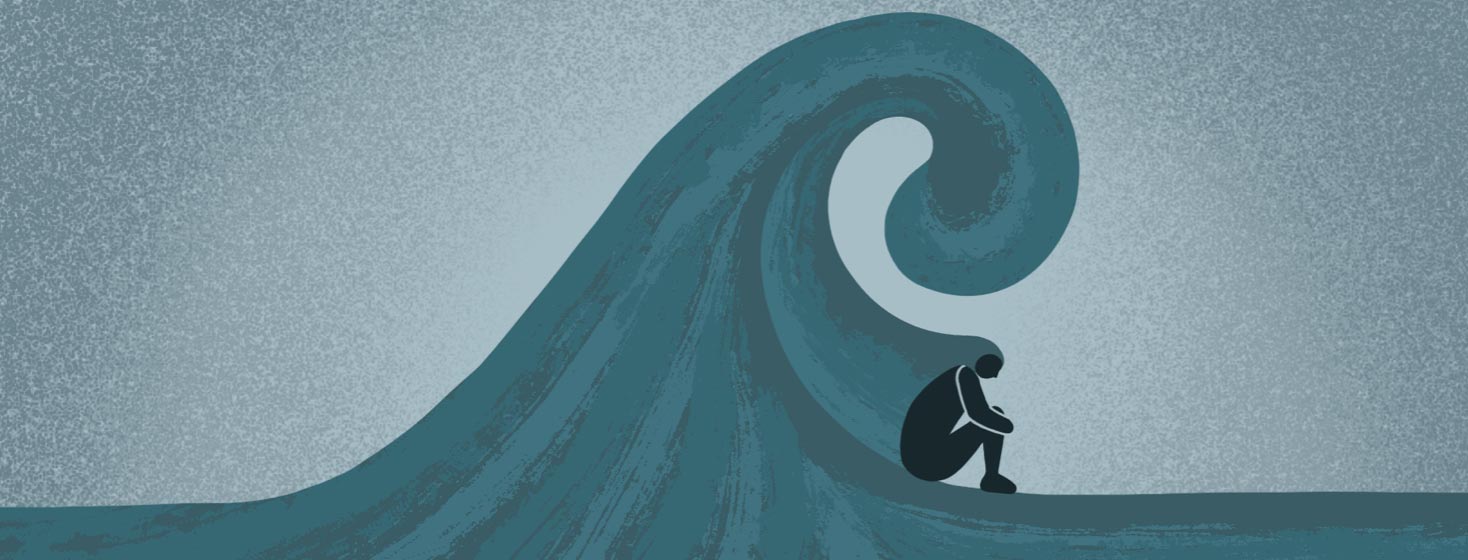Growth and Grief as a Caregiver
Navigating the metastatic breast cancer community comes with its ups and downs—stories of strength and beating the odds, stories of love and loss, advocacy and burnout.
I've made friends, found inspiration in new places, and faced discrimination in some areas one would never expect. I've learned more about my strength and resilience, even when my world feels like it is crumbling around me. I've found that my partner is my biggest rock through it all.
Grief and shock from initial diagnosis
It doesn't matter that years have passed since my partner's breast cancer diagnosis; the grief and feeling of shock still overwhelm me at the most innocent of moments, gutting me and leaving me feeling all over again like my stomach fell 3 floors out of my butt.
Somedays, that feels worlds away, like it happened to someone I'm looking at through foggy glass, the years adding a movie-like quality to the replay in my mind. The only difference is you can't feel a movie, the exhaustion of years of caregiving catching up to me, and feeling no different than the person who lived those moments. These are only the bad days, once in a while, but they are still present and still deserving of acknowledgment.
Processing and moving through emotions
It is so normal and okay to have feelings; they're as much a part of the journey as the doctor's appointments, blood tests, and scans. Without processing and moving through emotions, I would only get stuck in them and lose my time with my partner. It would leave me stuck in those first few months after diagnosis to dwell on those emotions.
Acknowledging my personal growth
I've grown exponentially since that day, those first few months, learning, advocating, and growing as a person, a partner, an advocate, and a caregiver.
I've learned how to be strong and how to stand up to discrimination when doctors and even the community refuse to acknowledge my marriage or my spouse's pronouns. I have worked with foundations to improve the visibility of the queer community in the metastatic cancer space because cancer doesn't just happen to women-identifying people.
I've found friends who understand the difficulties of caring for your spouse and support me emotionally no matter what kind of day I'm having. I've redefined my relationship with rest and the word "lazy." I've learned how to draw boundaries within my own caregiving journey.
Reflecting on gratitude
I'd say cancer has changed me; I'd even say it's made me a more well-rounded person, but I cannot say that I'm grateful for it.
I am grateful for this community, the perspective it's given me, the connections, and even the hope. There is nothing like knowing other people in the world are living through the same difficulties you are.
I am grateful for the doctors who genuinely care and work to provide my spouse with the affirming and compassionate care that they deserve. I'm thankful for my partner who has walked every step of this journey beside me, facing cancer with a quiet dignity and strength I'm not sure they even know they have. My partner has been my caregiver through this process just as much as I have been theirs.
I don't think it will matter how much time passes or how much the world changes, but I know that with every difficulty and day I learn, I grow and become better equipped to walk this journey. I want to let the hard days wash over me, process them, and let them go so I can enjoy what I have now.

Join the conversation